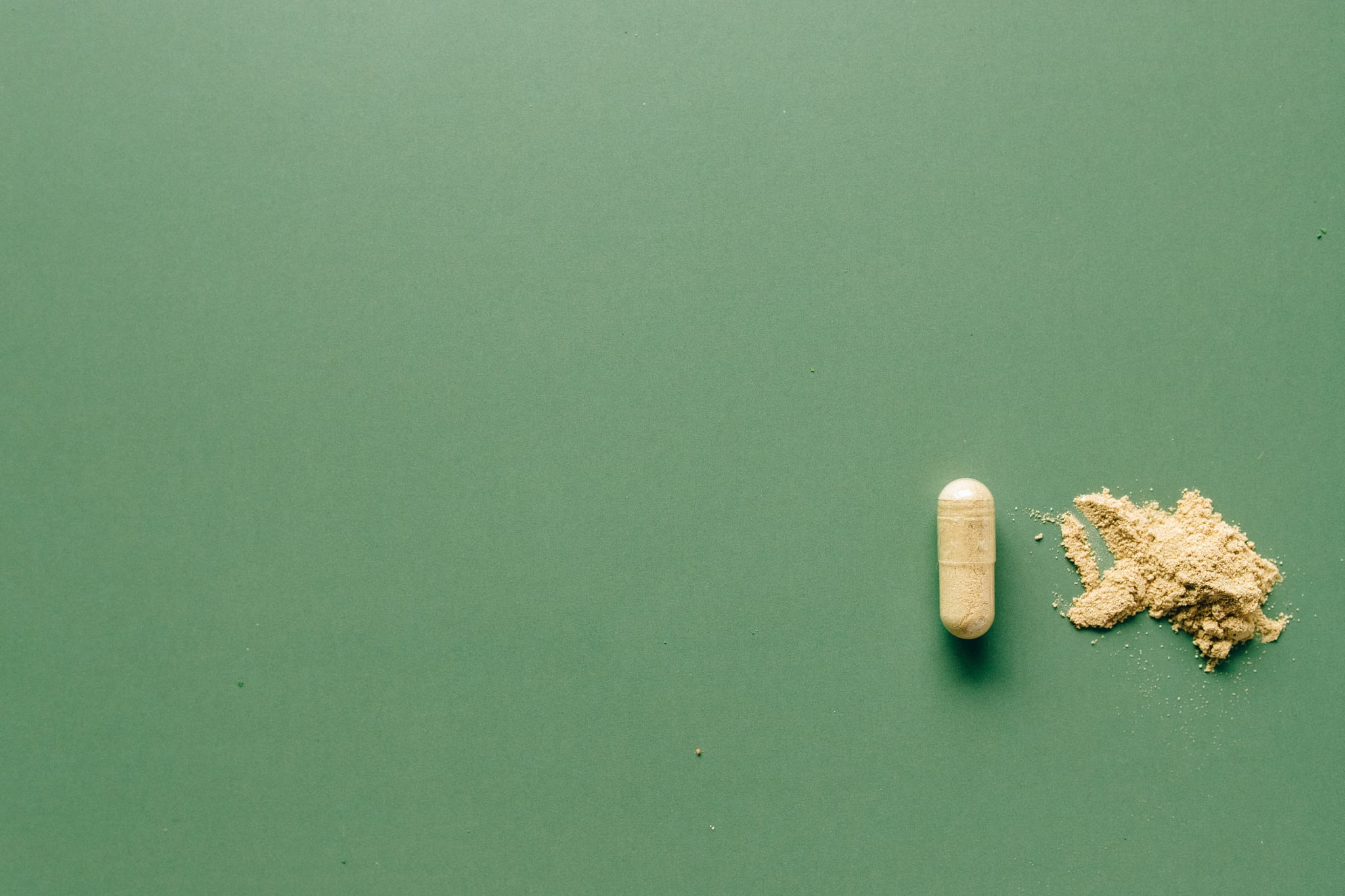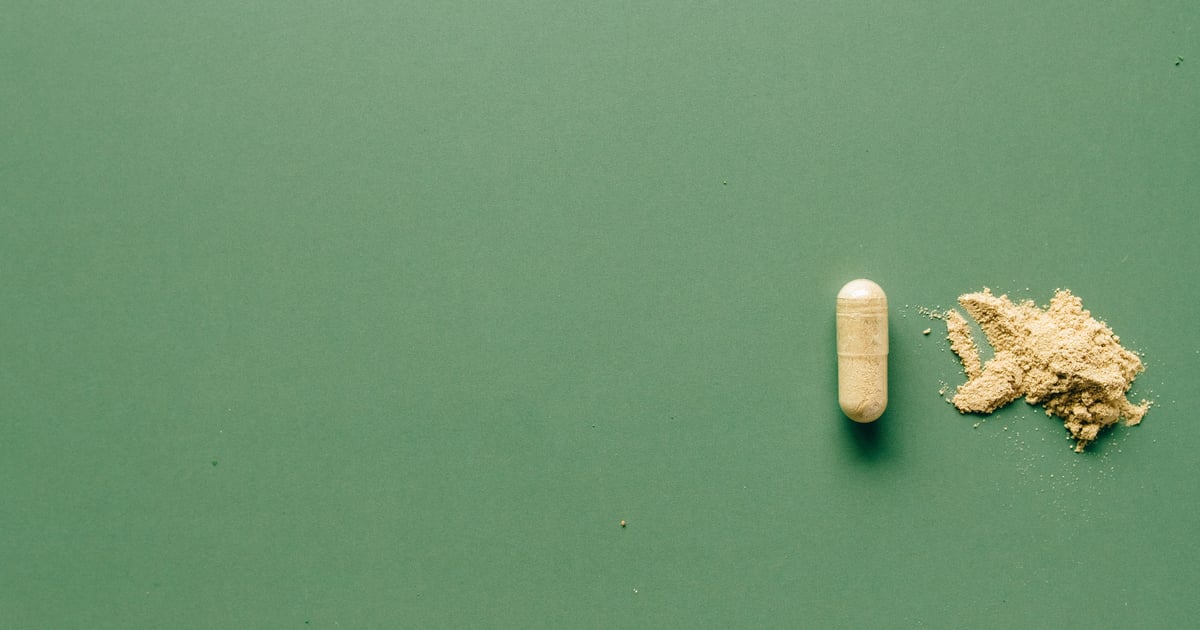Products You May Like

Hello, and welcome to the latest supplement craze: colostrum. You may be familiar with the ingredient. It’s actually what’s produced by the mammary glands immediately after giving birth — the very first form of breast milk. It’s extremely nutrient-dense, meant to nourish newborns. But now, people are raving about colostrum supplements, claiming they’re good for gut health and immunity. Could they have legit benefits?
The answer is a little complex. Colostrum supplements aren’t necessarily a crucial addition to your wellness routine, but research has shown it may have some advantages. Here’s what you need to know about colostrum supplements, including the supposed benefits and risks, according to doctors.
What Is Colostrum?
Colostrum is a nutrient-rich fluid produced by humans or mammals immediately after giving birth, says Liudmila Schafer, MD, an oncologist and founder of The Doctor Connect. “It’s often referred to as ‘first milk’ or ‘pre-milk,'” she explains. It’s rich in essential nutrients, antibodies, growth factors, and immune-boosting compounds, which makes it a vital source of nutrition and protection for newborns, she says.
The milk typically appears thick and sticky, and contains high levels of fat-soluble vitamins (A, D, and E), water-soluble vitamins (B-vitamins), and essential minerals like calcium, copper, iron, zinc, magnesium, manganese, and phosphorus, says Leah Johansen, MD, a family medicine physician at Lifeforce who specializes in functional medicine.
Colostrum supplements aren’t made from human colostrum, though. Most of what’s currently on the market are made from bovine colostrum, which is the milk cows produce in the first few days after giving birth, Dr. Schafer says. They’re often marketed to support immune function, gut health, and athletic performance.
What Are Colostrum Supplements’ Supposed Benefits?
The actual benefits of colostrum supplements for human adults are still hazy. More research is needed to prove their effectiveness, says Molly McBride, MD, an ob-gyn at Elite Gynecology. However, some of the supposed benefits include better immune function, increased muscle mass, improved athletic performance and recovery, and enhanced gut health, she says. These supps may also decrease inflammation, stress-induced gastritis, and stomach ulcers, and improve impaired glucose tolerance, Dr. Johansen adds.
Does the Research Show These Benefits Are Real?
There’s some promising research out there — but it’s hard to draw real conclusions quite yet. A 2021 review suggests that bovine colostrum might improve gastrointestinal distress, such as diarrhea and inflammatory bowel disease, Dr. Schafer says. That said, the review was funded by Pantheryx LLC, a company that creates colostrum products.
Other research, published in the journal Molecules in 2011, found that lactoferrin, a protein found in all milk but in especially high levels in colostrum, may help prevent bacterial and viral infection. And a 2013 review published in the Current Research in Nutrition and Food Science Journal indicated that bovine colostrum may have benefits related to immunity and infection fighting, due to its high concentration of antibodies, Dr. Johansen says.
But ultimately, the research into the human benefits of bovine colostrum supplements is early and limited. More research needs to be done before anyone can say for sure what its advantages are for humans, if any.
What Are the Risks of Colostrum Supplements?
While new supplements can sound exciting, it’s important to remember that supplements are not regulated by the Food and Drug Administration (FDA), and therefore always carry some risk. A recent review of melatonin gummies, for instance, found that most of the tested supplements contained a different amount of melatonin than what was listed on its label. A different review of collagen supplements found that many contain harmful heavy metals. That’s why it’s so essential to make sure you’re buying from a reputable, third party-tested brand you can really trust.
Possible concerns regarding colostrum supplements specifically include allergic reactions, digestive upset, and contamination with harmful bacteria like Salmonella if the supplements are not from a legitimate and reputable source, Dr. McBride says.
You should always consult with a doctor before taking colostrum supplements, since they may negatively react with certain medications, Dr. McBride adds. And while it may seem ironic, given that colostrum is a form of breast milk, it’s unknown if colostrum supplements are safe for pregnant or breastfeeding women, so discussing with your physician is a must if you’re expecting, breastfeeding, or trying to conceive.
Additionally, if you have a milk allergy, you could develop symptoms of nausea, gas, bloating, or diarrhea, Dr. Johansen says. Some products may also contain additives with other common allergens like soy. Bottom line: if you have allergies, err on the side of caution.
So, Are Colostrum Supplements Necessary?
Colostrum supplements are not necessary for most people, and “a balanced diet and healthy lifestyle are the best ways to support overall health and wellbeing,” Dr. McBride says.
Also be mindful that while colostrum has been studied for its potential health benefits, as of now, the scientific evidence supporting their use in adults is limited, Dr. Schafer says. “More research is needed to fully understand its effects and determine appropriate uses,” she says.
That said, if you have inflammatory conditions like irritable bowel syndrome or gastric ulcers, or you’re looking to boost your overall immune system, Dr. Johansen says colostrum supplements could possibly be beneficial. Just remember to always check in with a health-care provider to get the green light before trying a supplement like colostrum.
Best Colostrum Supplements to Try
If you’re interested in trying colostrum supplements, and your doctor gives the thumbs up, Dr. McBride suggests Symbiotics Colostrum Plus ($22) and Immune Tree Colostrum ($51).
But another option is ARMRA Immune Revival Sticks ($40). It’s a powder and is GMP (good manufacturing practices) certified, noting on its website that it’s “thoroughly tested for heavy metal, contaminant, and microbiological analysis by third party, FDA-approved, ISO/IEC-certified laboratories” — always a good thing to look for when choosing supplements, since third-party quality testing helps ensure the supplement is delivering what its label claims.
You should always do your research and purchase from a reputable brand, because the quality of colostrum supplements can differ significantly, notes Dr. Schafer. And again, talk to your doctor before adding this, or any supplement, to your routine.
